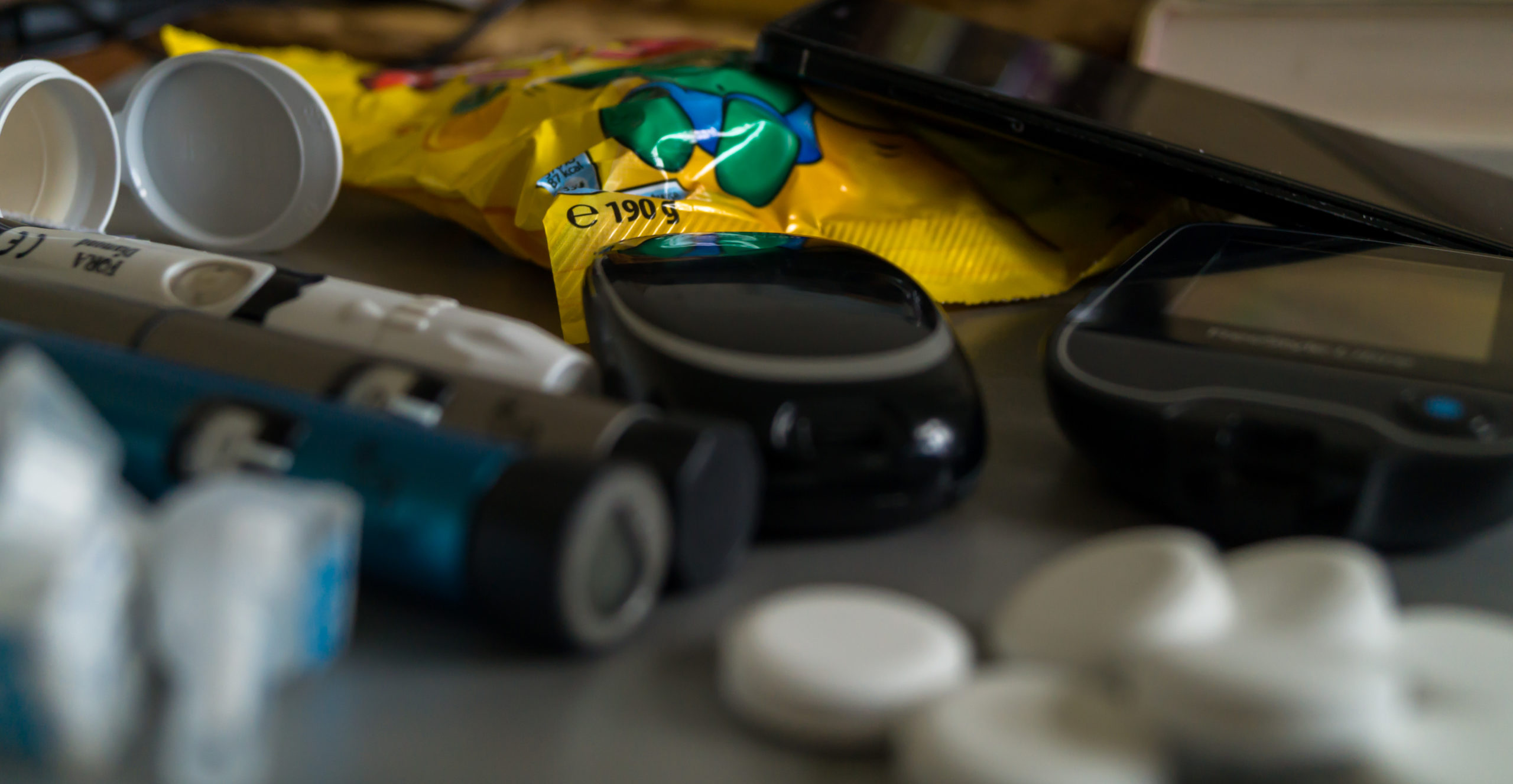The importance of program compliance

Here’s what happened. The other day I was lounging around the house in my jogging bottoms when the door buzzer rang. It was a friend of the bear’s popping in for a surprise visit. I pre-bolus for meals by 30 minutes, so I’d just injected insulin and stuck my lunch in the oven. A quick look in the mirror confirmed that a shower was in order. I jumped in the bath, washed my hair and applied some makeup. When I was ready to meet the world and went to open the door, the handle fell off in my hand.
I had locked myself in the bathroom with 3u of insulin making it’s way into my blood. Although not a massive dose, 1u drops my blood sugar by 3 mmol/l, so without food I was en route to hypoglycemic coma. I stood there for a moment and thought to myself; “What if they’ve gone out? What if I’ll die all alone on the bathroom floor? Will I win a Darwin Award?” The next thing that popped into my head was: “Is there sugar in shampoo?”, as I was anticipating drinking the bottle. What sort of hypo-treatment could one find in the bathroom?
I knocked on the door and the relief I felt when the bear got it open with a screwdriver a couple of minutes later is difficult to describe. They had not gone to the pub and left me to die in the bathroom. After this I put sugar in the bathroom drawer. And next to the toilet brush. And behind the sofa cushions in the living room. I put sugar in every room of the house, in case the door handle ever falls off. It’s easier than keeping an axe. It might sound paranoid, but this is program compliance for you.
Program compliance is the need to perform a set of repetitive actions until they become ingrained. You find it in the gun community. There’s no point in owning 53 guns if you get shot because you forget to bring one on the day you need it. It’s a pain in the ass to strap on your gun, but program compliance compels you to do so.
We’re all program compliant in our daily lives, double checking for keys and wallet before we leave the house. It’s ingrained from childhood so we don’t think about it. Our parents would shout at us when we left the keys behind. As we get older we add new things to this routine such as our phones and wallets. You know that feeling when you’re standing in the corner store and time comes to pay and you realize you left your wallet at home? That sense of existential dread is gonna be worse if you’re diabetic. Imagine going for a walk in the woods and when hypoglycemia hits you realize you’ve forgotten your sugar. You shouldn’t learn to keep your sugar with you by falling into a diabetic coma. This particular lesson you should learn before life teaches you.
Here’s what I always carry, even if I’m just going to the corner store:
- Freestyle Libre scanner
- Glucose tablets
- AccuCheck meter, lancet and testing strips (The Libre lags by 15 minutes, so you sometimes need to prick your finger to spot a hypo)
- Insulin (In case the zombie apocalypse hits and I can’t make it back to the house. You also never know when something tasty comes your way.)
- Phone (Because I log insulin and blood glucose readings in the Diabetes M app.)
- Extra needles
There’s also jelly babies, some in packets and some dry-aged, in all my bags and jacket pockets. It’s a backup, in case I’d run out of glucose tablets, for reasons I haven’t come across yet. I’m sure they’ll reveal themselves, in the same way the need to keep glucose tablets in the bathroom did.